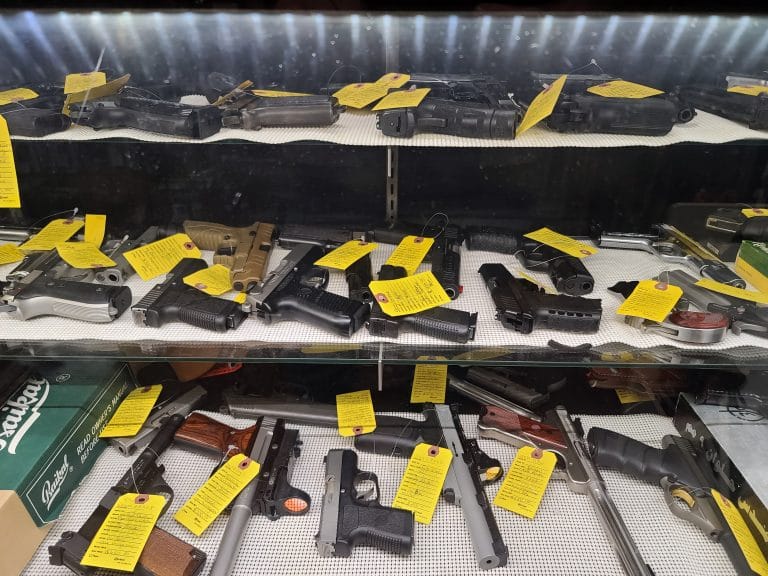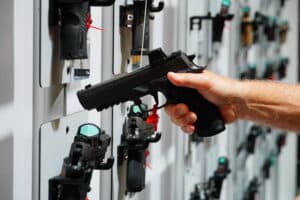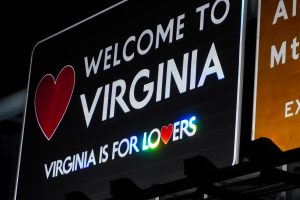North Carolina Governor Roy Cooper (D.) vetoed a bill to repeal the state’s pistol-purchase permit requirements without deigning to address critiques of racism associated with the current system. But what is the history of the permit requirement?
The law was passed in 1919, in the midst of Jim Crow segregation throughout the southern states. Historical records at the time of the bill’s passing don’t provide a great deal of detail on any explicitly racial motivations, but the context of the era is enlightening.
Just 20 years prior, the 1898 Wilmington Race Riot occurred where a white mob burned down the local black-owned newspaper and subsequently seized control of the local government. The upheaval created a cascade of effects across North Carolina, as segregationists became emboldened in their opposition to continued reconstruction efforts. As a result, legalized segregation (Jim Crow) and the disenfranchisement of black citizens became the norm in the state and would not be dismantled until the Civil Rights Movement.
North Carolina also has a history of overtly racist gun-control regulations.
In 1840, the state passed a law similar in nature to the 1919 purchase permit law but more explicit in its racist intent. The state outlawed the keeping or carrying of “any shot gun, musket, rifle, pistol, sword, dagger, or bowie knife,” by “any free negro, mulatto, or free person of color” unless they “obtained a license therefor from the Court of Pleas and Quarter Sessions of his or her county, within one year preceding the wearing, keeping or carrying thereof.”
North Carolina is not unique in this fact. Many southern states had similar laws explicitly prohibiting blacks from possessing firearms throughout the antebellum period. However, after the ratification of the Fourteenth Amendment in 1868, future gun restrictions had to be race-neutral in their text. But Jim Crow states continued to find ways to discriminate in the enforcement of “neutral” gun laws.
One such restriction was an 1893 Florida law requiring a license to carry or possess a pistol or repeating rifle. While the law as written did not make any qualifications based on race, a Florida Supreme Court justice said in 1941 the law was “never intended to be applied to the white population and in practice has never been so applied.”
The law at issue in North Carolina is facially race-neutral.
The statute says “It is unlawful for any person, firm, or corporation in this State to sell, give away, or transfer, or to purchase or receive, at any place within this State from any other place within or without the State any pistol unless: (i) a license or permit is first obtained under this Article by the purchaser or receiver from the sheriff of the county in which the purchaser or receiver resides.”
The law also requires that the issuing sheriff must verify that the applicant is of “good moral character.”
This “good moral character” component is where the controversy arises. As with the aforementioned Florida law, an element of discretion is granted in the permit approval process which provides bad actors with an opportunity to apply the law unequally. Corruption scandals have been uncovered in recent years, in places such as New York and California, where discretionary pistol permitting rules have facilitated vastly unequal applications of the law by local law-enforcement officials.
And there is at least some evidence that this unequal application exists currently in North Carolina as well. A 2021 North Carolina Law Review article found that blacks in certain counties were denied permits at much higher rates than were whites between 2015 and 2020.
“In practice, the Wake County Sheriff’s Office rejected 8.37% of White applicants, while rejecting 23.54% of Black applicants,” said Nicholas Gallo, the author of the article. “This amounts to Black applicants experiencing a rejection rate of approximately three times the rate of White applicants. Given Wake County’s similar racial composition to that of North Carolina as a whole, Wake County potentially represents statewide trends.”
This evidence of racial disparities is not automatically indicative of racist intent. The article does not disclose reasons for permit rejection and merely points to the unequal outcomes of one county in North Carolina. But the United States in recent years has increasingly reckoned with the persisting effects of laws passed in eras of de jure racism, and that introspection should not vanish when the topic is America’s gun laws.
Given the historical context of the law and the known tradition of southern states moving to disarm blacks, plus the evidence of persisting inequality of the law, the racial component of the North Carolina pistol-purchase permit shouldn’t escape scrutiny.






